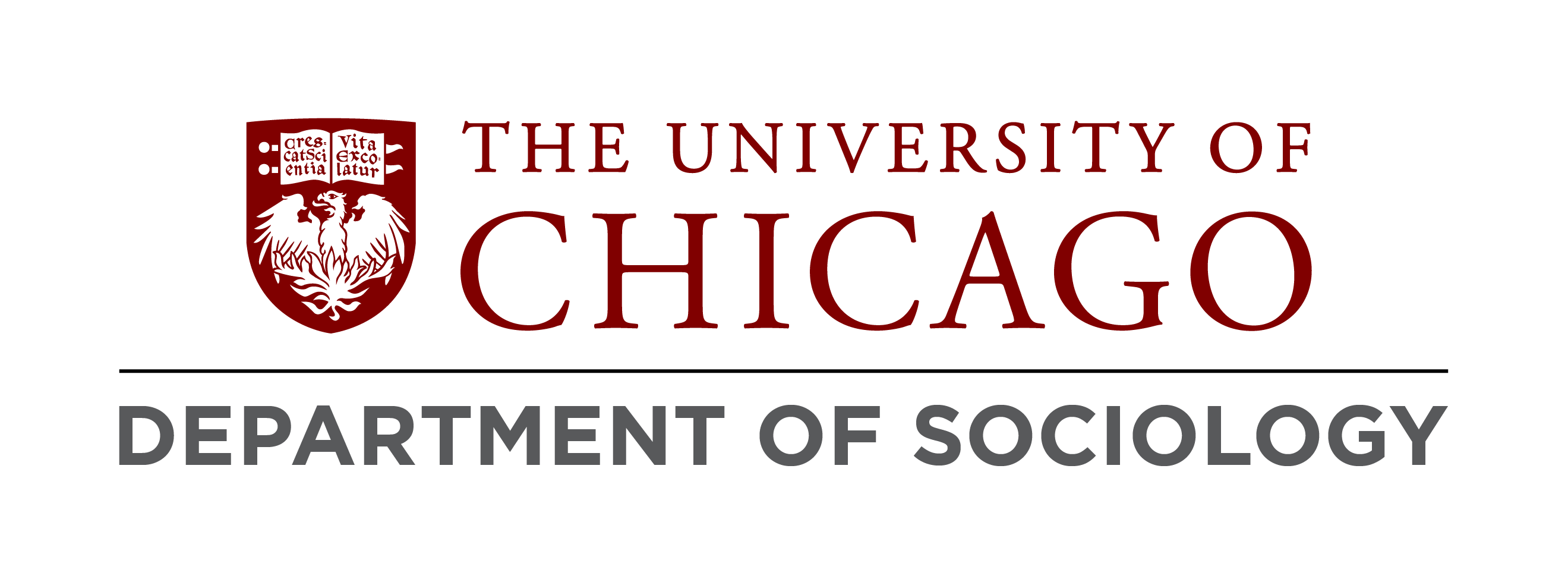2020 SSD Spring Quarter Degree Ceremony

Associate Professor and Director of Graduate Studies in the Department of Sociology
As a faculty member, there is no greater pleasure than seeing your students on graduation day and being able to celebrate their achievements. Though we are not able to meet in person this year, it is a great honor to be here virtually with you today.
As the 2020 graduating class in the Social Sciences Division, you completed your MA and PhD work in unprecedented circumstances. Faculty members often reminisce about their days of dissertation writing, romanticizing the joys of living a so-called cloistered life. The experience of the last few months has put into perspective what it actually means to be isolated in thought. All of you wrote the remaining pages of your theses and your dissertations without physical access to the library, separated from your friends, your families, and your communities, and facing the real or potential threat of illness. Without office space, you wrote sitting on beds, couches, kitchen counters, wherever you could. You did this while teaching remotely, organizing your children’s schoolwork, navigating your visa status. Since the murder of George Floyd by police on May 25th, many of you found ways to continue your activism, organizing and participating in protests, or writing public-facing editorials that call for our country, cities, and universities to be partners in the fight against anti-blackness in America. Your resilience and leadership in this current moment has been remarkable to see.
When Dean Woodward invited me to be the speaker today, I dug into our online archive of convocation speeches for inspiration - starting in the recent decade and, by the end of my research, all the way back to 1929. This 1929 convocation speech - the first to take place in Rockefeller Chapel, stood out to me for two reasons. First, it was delivered on the precipice of the Great Depression, 91 years ago yesterday, which, in light of the economic turmoil and unemployment wrought by COVID-19, felt unfortunately salient. Second, the speaker was Robert Maynard Hutchins, the then-president elect of the University of Chicago and a figure who has played an unexpected role in the development of my own work.
Hutchins came into my life through my father, who has worked in higher education all of his life. When I joined the faculty here, my father was over the moon that I was going to what he called Hutchins’ university. He could not believe that there is no formal acknowledgment of Hutchins here aside from a small plaque. Hutchins’ writings on the role of education shaped my father’s own career. He is a great read even today, as he offers up a vision of higher education as “unsettling the minds of young people” alongside snarky quips about university administrators, faculty demand for better parking spaces, and athletics - my personal favorite being, “When I feel like exercising, I just lie down until the feeling goes away.”
Still holding the record for the youngest person to be appointed university president - he was 30 at the time - Hutchins was a public intellectual who frequently appeared on the radio and in the news media to defend academic freedom in the face of McCarthyism and to make an impassioned case for the value of a liberal education - a form of education that many conservative politicians and business magnates argued was indoctrinating young people with radical ideas about social change. President from 1929-1951, Hutchins introduced many institutional reforms, some of which we still live with today, such as the divisional model of graduate education. Other radical experiments, such as suspending fraternities and canceling all varsity sports, are long gone.
Hutchins’ project that has had the most longevity outside of the University of Chicago is his work with Mortimer Adler on curating a series titled “The Great Books of the Western World.” I won’t rehearse the critiques of this project here - and there are many - but simply acknowledge that Hutchins and Alder initially curated a selection of books composed entirely by white European men. My interest in the Great Books initiative is not in the content of the project, but in the impact - how Hutchins and Adler found a way to take conversations that happened only on the manicured campuses of private universities to a broader public. In the 1950s and 1960s, Great Books reading clubs sprung up across the country at libraries and civic centers, engaging with texts from Plato to Marx. These groups drew college graduates, along with men and women who had never had the opportunity to study at a university.
I personally have taken the public-facing aspect of the Great Books project as a provocation for how we might, today, take critical ideas and research beyond the walls of the university and the pages of academic journals with pay-walls. I imagine something like the Great Problems project - public engagement around climate change, racial justice, gender equality, economic redistribution. Rather than advocating we curate a new canon of Great Books, I wonder how we might harness the virtual platforms that now saturate our world - platforms that we have, in the last three months, learned can facilitate real and meaningful connection between people separated by a few blocks or by an ocean. I have experimented in my own work with film and with trans-media games - we can also imagine video games - the most prevalent shared form of media today -, zoom, twitch streams - or whatever platforms come next. As you leave the University of Chicago, my hope is that you use your expertise, your research, and your voice to open to a wider world these crucial conversations that I have been privileged to have with you over the years.
I want to conclude by addressing the uncertain economic situation into which you are all graduating. We have heard many opinions on what the next few years entail, and I don’t pretend to have answers. But, what I can say is that we as faculty are here to help you through this. While we have the legacy of being the university that once canceled varsity sports, I have learned more here about the value of team-work and collaboration through working with my MA and PhD students than I could have imagined. These relationships with your advisers and your peers continue past your time at the university, and will, I hope, be a source of support in good and bad times. So, in this moment of uncertainty, I hope you take the time to celebrate your incredible achievements with your communities knowing that we are always on your team.
 THE UNIVERSITY OF CHICAGO
THE UNIVERSITY OF CHICAGO

